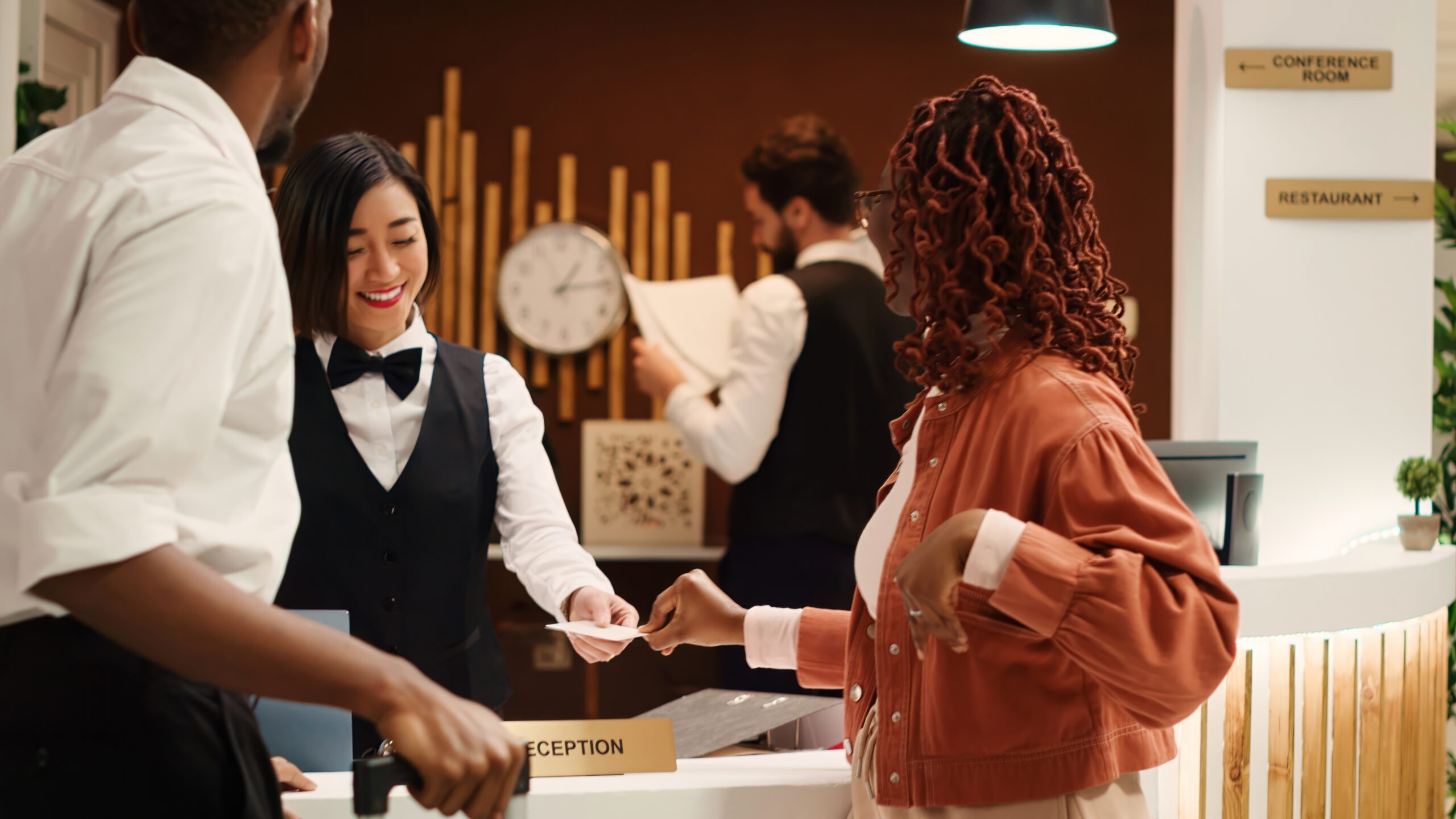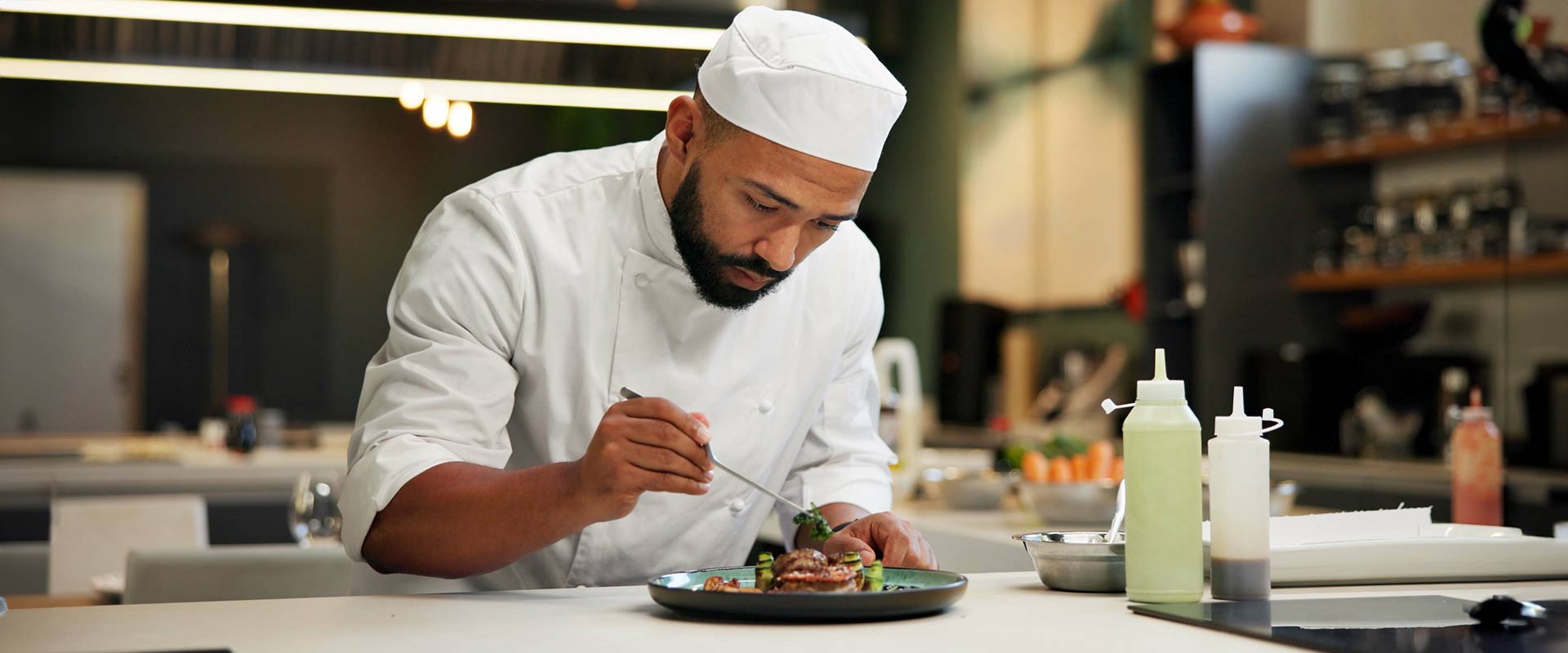Hospitality Tech: How it can support recovery

Hospitality Tech after Covid: What does the future hold?
With full recovery not expected till 2024, it’s important that the hospitality tech industry looks to build on the trends from 2020.
Last year, as the pandemic took hold, the world experienced a shift like never before. Restrictions on movement both locally and internationally had a devastating impact on the travel and tourism sector, with a 67 percent drop in hotel occupancy in the UK. As restrictions start to be lifted it is apparent that consumer behaviour has and will continue to be altered as a result of recent events, and what’s more there are still many unpredictable months ahead for the hospitality tech sector. It follows that the hospitality and tourism industry need to take stock and revaluate their business structure in line with current needs and the desires of the “new” market. Digital technologies that have the potential to revolutionise the travel, transportation and hospitality industry, are similarly empowering customers. As a result, consumers expect innovation at an affordable price through a personalised, engaging and seamless experience that continuously evolves over time.
As lockdowns lift and borders begin to reopen, albeit with a traffic light system, the hospitality tech industry is entering a new era. While the industry is expected to see better results compared to 2020, projections for the few years remain significantly below pre-pandemic, with full recovery expected in 2024. Unavoidable is the shadow the pandemic continues to cast over both traveler’s behaviour and their decision-making.
Thus moving forward, it’s important to build upon the two significant trends developed over the course of 2020. First, the broad use of data, and second, accelerated digitalisation. Last year, providers were forced to pull back on spend, but equally, re-evaluate processes and investment with the view of streamlining administration, and ultimately, future-proofing business. So, what exactly should we expect to see in operational change by the summer and moving forwards?
One thing is for sure: post-pandemic hospitality will bear the scars and take time to recover. That’s not to say it won’t bounce back. It will, but there will be cuts and consolidation and those prepared to embrace change and evolve their business models are the most likely to survive and face a bright future. On a purely practical level It is important to consider obstacles faced by hoteliers and hospitality globally. For instance, even those customers that do manage to get abroad or book events will probably have to remain socially distanced and new regulations might have to be incorporated into the customer experience at short notice. Thus, operators will be required to work with tech specialists to ensure that a flexible, personalised and warm approach to customer demands exists.
The deciding factor
Along a similar vein, the industry also needs to consider IT operational services and systems, and how advanced digitalisation can help create a seamless booking service, whilst also managing internal issues such as cancellations and trip changes at speed. The new digital landscape has the potential to massively aid revival of the hospitality industry, but only if carefully implemented. Partnerships with IT service companies will provide the advice and expertise to help clients in the global hospitality industry ensure the latest technology can be utilised to keep clients engaged and improve their overall stay experience. Year in, year out, the standards expected are ever-increasing. These partnerships and technologies will ensure those in this sector consistently deliver on their promises.
Hospitality tech is arguably one of the most competitive industries out there and in these challenging times even more so. Gone are the days where a simple “please” or “thank you” or service with a smile would suffice. Whether someone’s traveling for business or pleasure, the level of customer service they receive will ultimately be the deciding factor in repeat business – it’s the very basis of brand loyalty. Here’s where technology comes in. With the use of technology, hoteliers and other hospitality operators can work to improve their standards, offering a stress-free and better overall customer experience. For instance:
- Online check-in: After a long, tiresome plane or even car journey, the last thing customers want to do is stand in a queue for an hour, waiting to check-in. By offering remote check-in, customers have the option of checking themselves in, providing a smooth and seamless journey, whilst giving time back to staff to focus on customer service and hotel running.
- Digital keys: This ties in nicely to online check-in. Hotels globally are beginning to offer digital keys, allowing customers access to their hotel room via their phones. This not only allows for a better check-in process but also means there’s no risk of damage or loss to the keys.
- Mobile Apps: Making an app available to all guests and staff means customers can do all of the above, from one single location. This also provides a place for customers to book the hotel “extras”, e.g., a room clean, car hire, or attractions and activities. Customers have access to everything available to them, from the ease of their smartphone. Also, from the hotel’s point of view, this is an excellent way to monitor guest experience and advertise potential upgrades. In a world where reputation takes years to build and only seconds to tear down, ensuring your guests are having a trouble-free and pleasant stay is crucial.
- Virtual Assistant Artificial Intelligence (AI) technology: This frictionless/touchless technology will enhance the customer experience, providing the technology for room tours, restaurant services and check-in services. Similarly, the integration of voice assistants with the hotel app will allow for voice-enabled commands for in-room utilities.
- Sanitization and housekeeping notifications: The pandemic has shone an important spotlight on cleaning and hygiene practises, with a much higher standard now expected. Using the apps, hotels can enable push notifications for the sanitization of areas, e.g. rooms, gym, restaurants, conference rooms, with the option for guests to request this themselves and also be notified once the sanitization is complete.
Furthermore, a technological advancement we can definitely expect to see more of, is the use of robots. As AI continues to evolve, so does the use of robots, which will be on hand to carry out “everyday” repetitive tasks, such as delivering water, towels, food or scheduling appointments. Operators that incorporate robotic devices will find that this allows the human workforce to focus on providing that vital personalized, warm experience so critical to a positive customer experience.
As organizations in the hospitality sector look to implement these major transformational changes, it’s likely they will look to cloud offerings to streamline and expedite these new processes. The use of cloud will enable them to develop a single platform allowing collaboration between stakeholders, as well as providing a system for all inventory and profiles to be located, thereby ensuring a single image of inventory and a single view of the guest across the enterprise. This will also allow for the incorporation of automation features such as front desk, housekeeping, catering, restaurant operations, spa, etc. This translates into optimal cost efficiency and also, guest experience – arguably, the two biggest priorities for anyone operating in the hospitality sector.
The original version of this article was first published in IT Pro Portal
We are a hospitality and catering recruitment company. We can support you to find a new role or the staff you need to grow your business.


